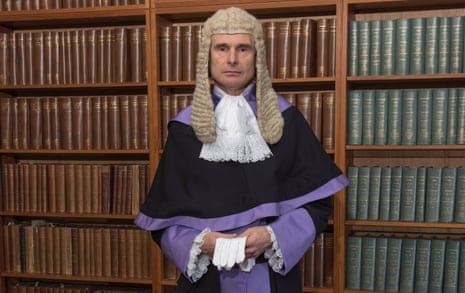A landmark hearing in the court of appeal is under way to examine how cases of domestic abuse are handled by judges in the family courts in England and Wales.
It concerns four conjoined appeals which feature allegations including marital or partner rape and coercive control, which emerged during private proceedings to address disputes centred on access to children.
The appeals have been brought by mothers who have made serious claims against the fathers of their children, and challenge the decisions made by circuit judges at the family courts during the last 18 months.
Two of the cases relate to decisions by Judge Robin Tolson, who was criticised last year by a more senior judge based in the Family Division of the high court over his handling of rape allegations. Ms Justice Russell upheld a woman’s appeal after she complained Tolson had deduced she could not have been raped because she took “no physical steps” to stop her assailant.
Barrister Christopher Hames QC, representing one of the four women, says his client is challenging Tolson’s decision to make “absolutely no findings” in respect of her “myriad of allegations”, including complaints of non-consensual sex, coercive control and that her partner “slapped her hard” when she was heavily pregnant.
The court of appeal heard how the mother had had an on-off relationship with her ex-partner, who had wrongfully retained their child at his home overseas after the mother had left them there for a visit.
Hames said Judge Tolson ignored an important admission by the father that on a few occasions he used physical violence.
He told the court of appeal on Tuesday that Tolson had found the father’s account to be consistent, despite police evidence to the contrary. Hames asserted that Tolson’s reference to the mother’s mental health issues as her “demons” flavoured his entire approach to her and her evidence.
He said: “It was clear the judge was not keeping an open mind about the allegations the mother made. He didn’t analyse the evidence appropriately at all. He failed to take a holistic evaluation of all the evidence before him.”
Hames said Tolson had wrongfully placed emphasis on the fact the alleged non-consensual sex preceded “many other occasions of consensual sex” and the decision by the mother to leave the child abroad with the father.
“It should not be taken that just because a woman has consented to sex in the past that she should be taken as consenting every time … I would have hoped that this is an assumption long assigned to the judicial dustbin.”
The appeal raised issues of how claims of coercive and controlling behaviour are handled in the family courts.
“In this appeal, as in other cases, the real question is not limited to what happened, but whether those events were abuse themselves and/or whether there is sufficient evidence of patterns of behaviour which is demonstrative of an abusive relationship,” Hames told appeal judges Sir Andrew McFarlane, Lady King and Lord Holroyde in a written case outline.
Hames said Tolson had commented that incidents of note were “insignificant in themselves” and ignored that victims of abuse do not always recognise themselves as victims and as a result may not report abuse to the authorities.
On behalf of the respondent, barrister Janet Bazley QC highlighted “extravagant claims” made by the mother including that the father had a personality disorder and that one of his older children was a risk to their child.
Bazley said Tolson had concluded it was impossible to reconcile sending a very young child to live with their father for an extended period with her claims and concerns about the father’s ability to provide adequate care.
The court also heard that the mother had told psychiatrists the father was a “good man and not abusive”.
Barrister Amanda Weston QC, who is representing a second woman challenging a ruling by Tolson, said he had been wrong to find her client’s allegation of rape “deeply unconvincing” because she had had consensual intercourse with the father on other occasions.
“The judge failed to consider the rape allegations in the context of a pattern of coercive control,” she said in a written outline of the case.
“The judge was wrong to find the mother’s case ‘weakened’ because she did not conform to his stereotype of the ideal victim, as she delayed in reporting the allegations.”
Charlotte Proudman, one of the mother’s lawyers, told the Guardian: “These appeals show the need to update how family courts approach cases involving rape, domestic abuse and coercive control. All too often we see outdated attitudes towards wider domestic abuse, which could leave parents and children at risk of harm.
“It’s been two decades since the family courts have looked at these issues and these landmark appeals couldn’t be more timely.”
A report by the Ministry of Justice published last year warned that “rape myths” can be applied in the family jurisdiction to undermine a woman’s credibility.
Two further women have challenged rulings by other judges – Judge Jane Evans-Gordon and Judge Richard Scarratt.
No findings of abuse had been made against any of the men involved and each of them opposes the appeals.
It is anticipated appeal judges will not only decide whether or not to uphold or reject the appeals – but may also issue new guidance to family court judges based on the findings.
The hearing continues.
